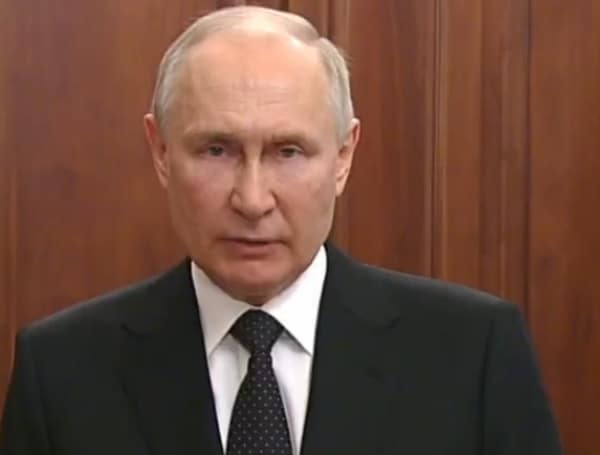The Kremlin has reiterated its unwavering commitment to achieving its original goals in Ukraine, signaling that future peace negotiations will hinge on conditions that undermine Ukraine’s sovereignty and independence.
Russian Presidential Aide Nikolai Patrushev made it clear that Russia will not consider ceding any occupied Ukrainian territories and insisted that international recognition of Russia’s annexation of Donetsk, Luhansk, Zaporizhia, Kherson oblasts, and Crimea is non-negotiable.
READ: US Expands Sanctions On Russia Targeting Key Economic, Energy Sectors
In an interview with Komsomolskaya Pravda on Tuesday, Patrushev falsely claimed that sham referendums conducted in September 2022 legitimized Russia’s annexation of Ukrainian territories. He stated that Russia’s goals, including the “demilitarization” and “denazification” of Ukraine, remain unchanged.
These terms, used by President Vladimir Putin to justify the February 2022 invasion, represent the Kremlin’s objective of dismantling Ukraine’s defensive capabilities and replacing its government with a pro-Russian regime.
Former Roscosmos head Dmitry Rogozin reinforced these goals, describing “denazification” as the “liquidation of those who instill a misanthropic Russophobic spirit.” This rhetoric underscores Moscow’s continued refusal to recognize Ukraine’s sovereignty or allow it to determine its own future.
READ: Russia Rejects Trump Team’s Reported Proposals For Ukraine Peace Deal
Russian officials, including Foreign Minister Sergei Lavrov, have escalated efforts to delegitimize Ukraine’s identity. Lavrov referred to Ukraine as “the country that is now called Ukraine,” implying that it is not a legitimate, independent state. Similarly, Patrushev emphasized a so-called “fraternal” connection between Russia and Ukraine, dismissing any distinct cultural or historical identity for Ukrainians.
These statements align with a longstanding Kremlin narrative claiming that Ukrainians, Belarusians, and Russians are part of a single “Russian nation.” Putin articulated this view in a 2021 essay, a narrative his administration has perpetuated throughout the invasion as part of an information campaign to justify its aggression.
Patrushev called for direct negotiations between Russia and the United States, excluding not only Ukraine but also European countries such as the EU and UK. Lavrov echoed this sentiment, questioning the roles of Germany, France, and Italy in resolving the conflict. The Kremlin’s insistence on sidelining Ukraine from discussions about its own sovereignty aims to portray the war as a U.S.-Russia geopolitical issue, diminishing Ukraine’s legitimacy.
READ: Russia Turns To Bitcoin For International Payments Amid Sanctions
By framing itself as the only significant negotiating partner for the United States, Russia seeks to undermine Western support for Ukraine while attempting to re-establish itself as a global power on par with the former Soviet Union.
The Kremlin’s hardline stance and rejection of Ukrainian sovereignty highlight the challenges in achieving a diplomatic resolution to the war. Moscow’s demands effectively require the West to recognize Russia’s territorial claims and diminish Ukraine’s right to exist as an independent state. Western leaders have consistently rejected these conditions, emphasizing Ukraine’s sovereignty and territorial integrity as non-negotiable principles.
As the war continues, the Kremlin’s rhetoric and actions suggest it remains determined to press forward with its military and political objectives, further complicating prospects for a peaceful resolution.
Please make a small donation to the Tampa Free Press to help sustain independent journalism. Your contribution enables us to continue delivering high-quality, local, and national news coverage.
Connect with us: Follow the Tampa Free Press on Facebook and Twitter for breaking news and updates.
Sign up: Subscribe to our free newsletter for a curated selection of top stories delivered straight to your inbox.

